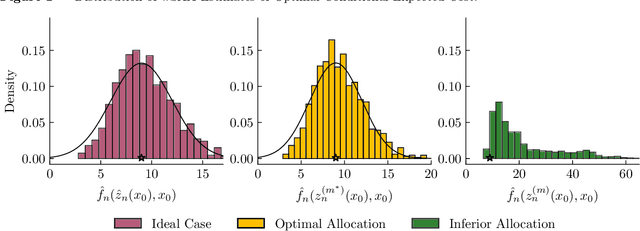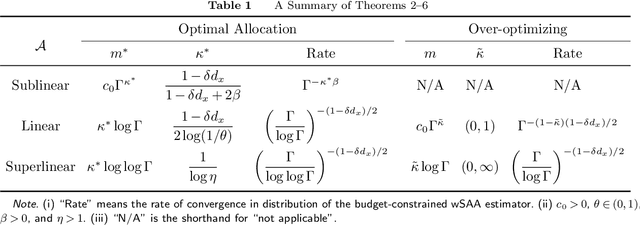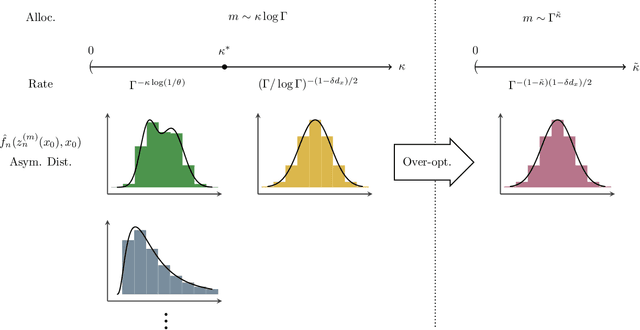Statistical Inference for Weighted Sample Average Approximation in Contextual Stochastic Optimization
Paper and Code
Mar 17, 2025



Contextual stochastic optimization provides a framework for decision-making under uncertainty incorporating observable contextual information through covariates. We analyze statistical inference for weighted sample average approximation (wSAA), a widely-used method for solving contextual stochastic optimization problems. We first establish central limit theorems for wSAA estimates of optimal values when problems can be solved exactly, characterizing how estimation uncertainty scales with covariate sample size. We then investigate practical scenarios with computational budget constraints, revealing a fundamental tradeoff between statistical accuracy and computational cost as sample sizes increase. Through central limit theorems for budget-constrained wSAA estimates, we precisely characterize this statistical-computational tradeoff. We also develop "over-optimizing" strategies for solving wSAA problems that ensure valid statistical inference. Extensive numerical experiments on both synthetic and real-world datasets validate our theoretical findings.
 Add to Chrome
Add to Chrome Add to Firefox
Add to Firefox Add to Edge
Add to Edge